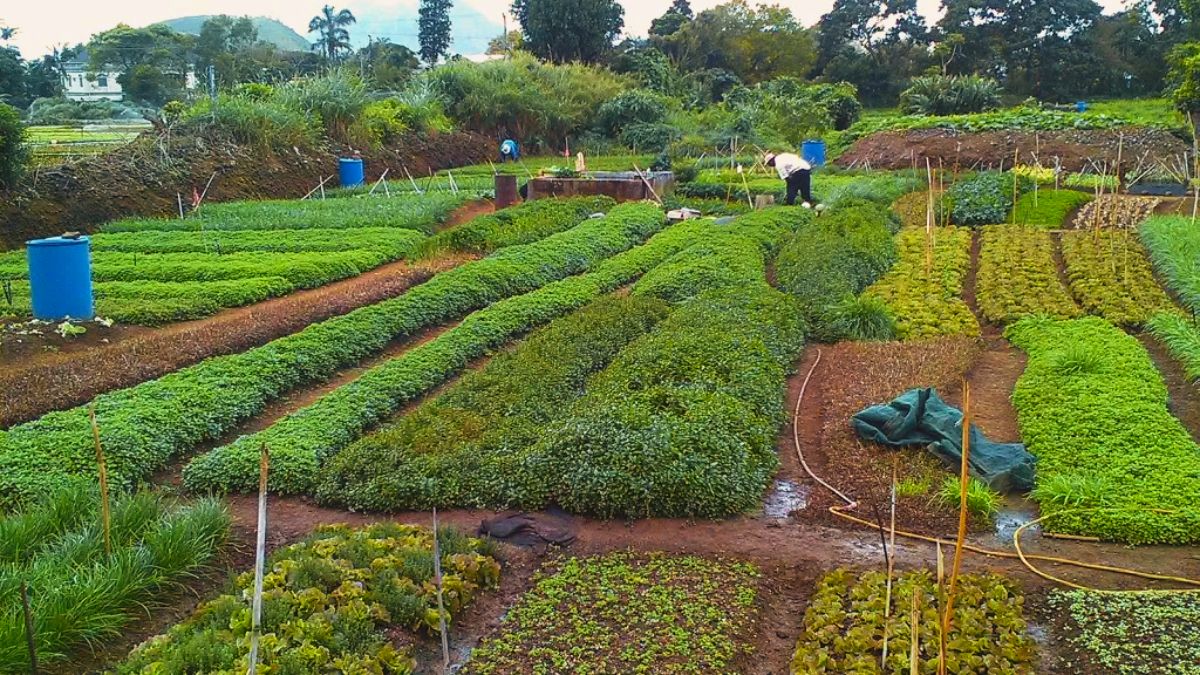Politics
Agricultural Sector 2024 Pre-Budget’s Tough Talk

Following a hiatus marked by a series of national events, pre-budget consultations resumed last Thursday at the Ministry of Finance headquarters in Port Louis.
Minister Renganaden Padayachy met with various stakeholders from the private sector. Discussions on the 2024-2025 Budget kicked off last Thursday with the Mauritius Chamber of Agriculture and the Mauritius Sugar Syndicate.
During the meeting, recurring challenges facing the agricultural sector in Mauritius were once again highlighted, including labor shortages, water management, rising production costs, the need for workforce training, and the emergence of new crops.
“We propose solutions every year. It is the prerogative of the State to implement these solutions,” emphasized Jacqueline Sauzier, Secretary-General of the Chamber of Agriculture.
In light of the myriad issues confronting the sector, the idea of attracting youth to ensure succession was also put forth.
Another aspect discussed with Finance Minister Renganaden Padayachy was the necessity of making the agricultural sector profitable amidst increasing prices and ever more challenging production costs for consumers to bear.
Sauzier noted that proposals are presented to the Finance Minister with the aim of translating them into “opportunities.”
Furthermore, these exchanges allowed the Secretary-General to articulate a vision of a sustainable, modern, and inclusive agricultural sector involving all stakeholders in the agricultural value chain.
Moreover, Devesh Dukhira, Chief Executive Officer (CEO) of the Mauritius Sugar Syndicate, advocated for “locking” the local sugar market, arguing that Mauritius produces a sugar surplus.
“There is no reason to import sugar.” To ensure Mauritius’ competitiveness, he also stressed the need to enhance port activities’ efficiency.
Additionally, he called for a review of bagasse remuneration, set in 2021, to adjust it to current levels.
He underscored the necessity of strengthening governmental support for sustainability, stating that “30% of Mauritius’ production is sustainable, and it is ambitious to surpass this threshold.”
Enhancing the financial center’s image:
In the face of international competition, Mauritius Finance strongly argued for increasing Mauritius’ visibility.
“We must have a more prominent presence across various communication channels. It is also necessary to reassess our Unique Selling Proposition (USP). Should we use the same elements of our USP or reinvent them based on our context?” questioned Shamima Mallam-Hassam, President of Mauritius Finance, in a phone interview following her meeting with the Finance Minister.
She emphasized that year after year, similar requests are made to the government to give greater importance to promoting and raising Mauritius’ visibility.
“Efforts have been made, but they have not met our expectations.” One of the association’s recommendations also includes improving the ease of doing business to create a conducive business environment in Mauritius.
“We face delays at the authority level. In a context of intense competition, we must react promptly,” she stressed, as these delays pose problems for the sector.
The association also insists on the need for more certainty in taxation matters.
“We need to assess if our tax system is still suitable for the international context. Currently, there is too much uncertainty in tax matters, which does not provide assurances to investors wishing to come to Mauritius,” she explained.
Furthermore, the association asked the government to pay particular attention to small venture capital funds that cannot be treated the same as larger ones. “If we do not act, investors will turn to other jurisdictions,” she warned.
The issue of human capital was also raised, with proposals aimed at addressing this problem. Regarding brain drain from this sector, she suggested that the issue seems to have somewhat improved over the past month.
However, she lamented that destinations developing their financial centers attract local professionals, who prefer to respond positively to foreign recruiters’ demands.
Furthermore, the Mauritius Africa FinTech Hub, represented by its CEO, Benazeer Saïdoo, presented its proposals concerning blockchain, open banking, e-KYC (electronic Know Your Customer), and promotional campaigns aimed at increasing visibility of the law on virtual asset services and initial token offerings.
Source: l’Express











